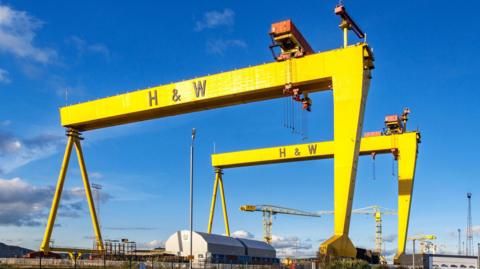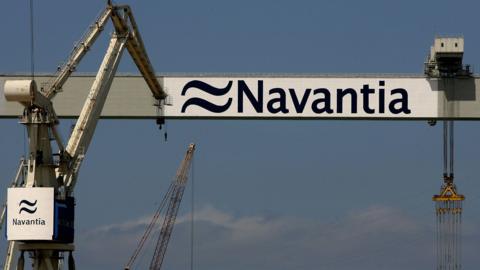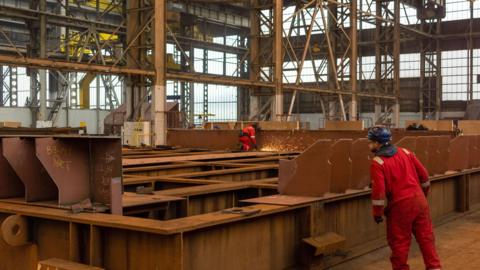Harland & Wolff, the Belfast shipyard best known for the Titanic, has been saved by a deal with Spain's state-owned shipbuilder.
Navantia had been in exclusive negotiations since October after Harland & Wolff's holding company fell into administration.
About 1,000 jobs are to be saved in the deal, which also includes Harland & Wolff's facilities in Scotland and England.
The UK Business Secretary Jonathan Reynolds said the deal was "good for jobs" and "good for national security".



